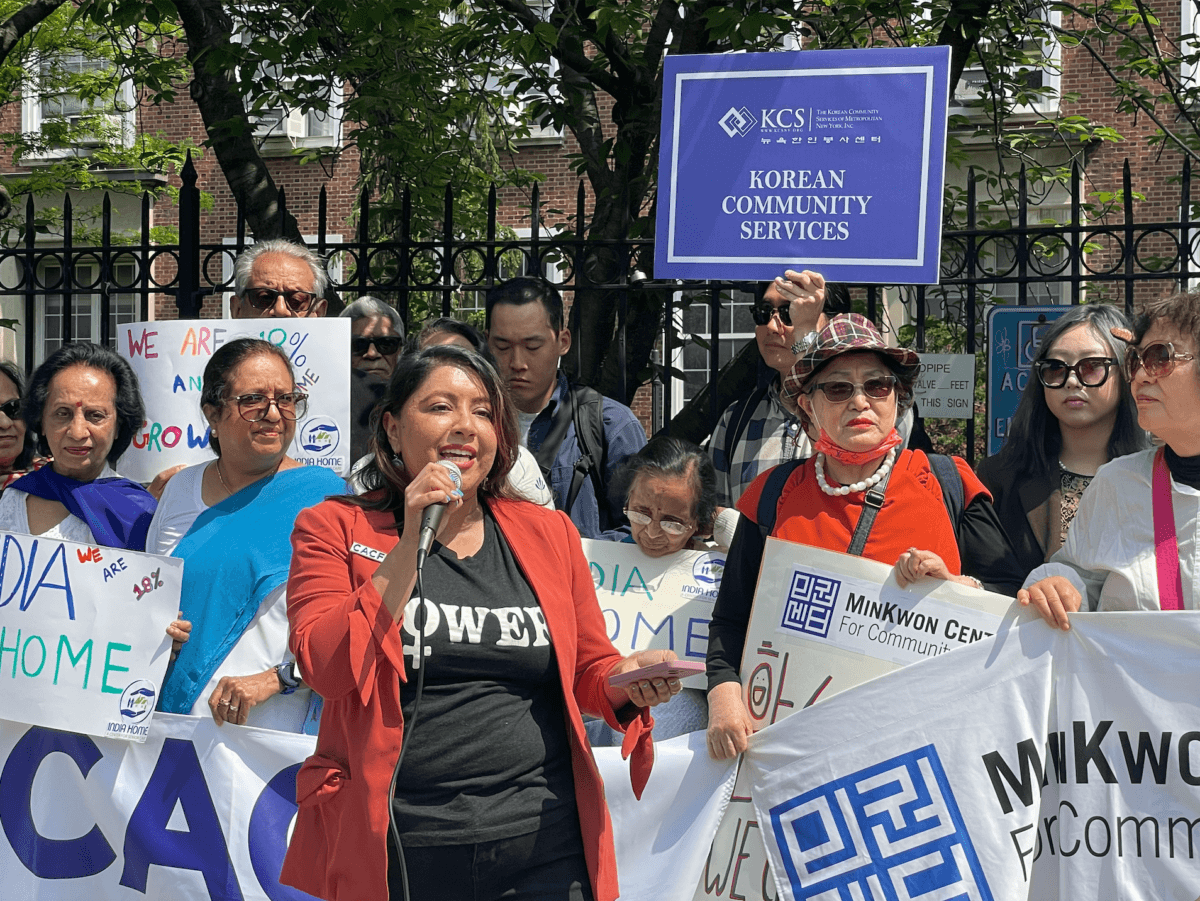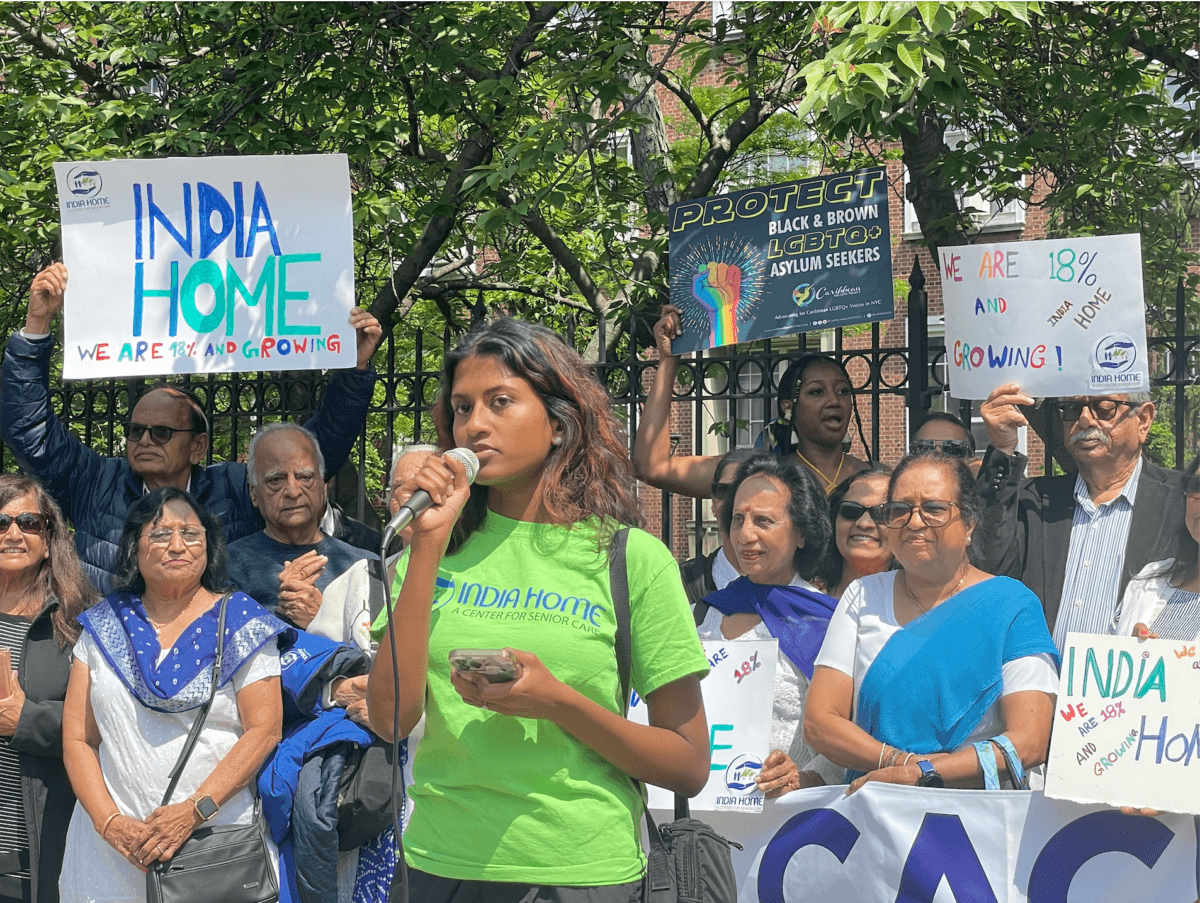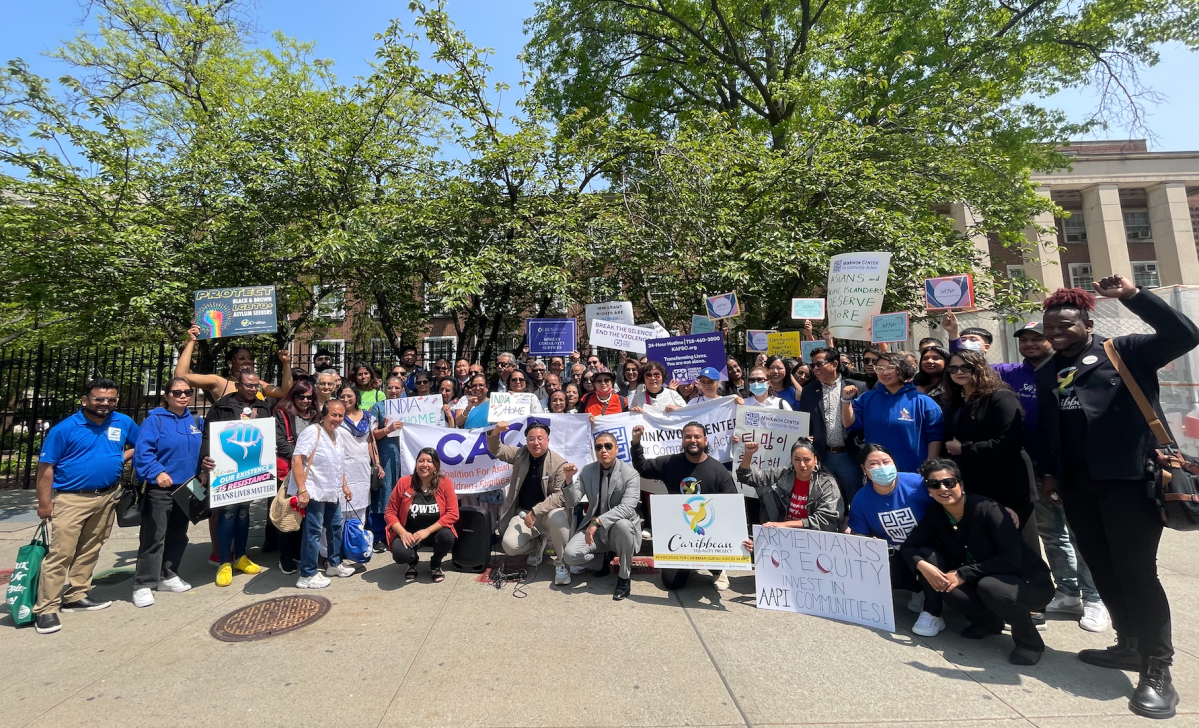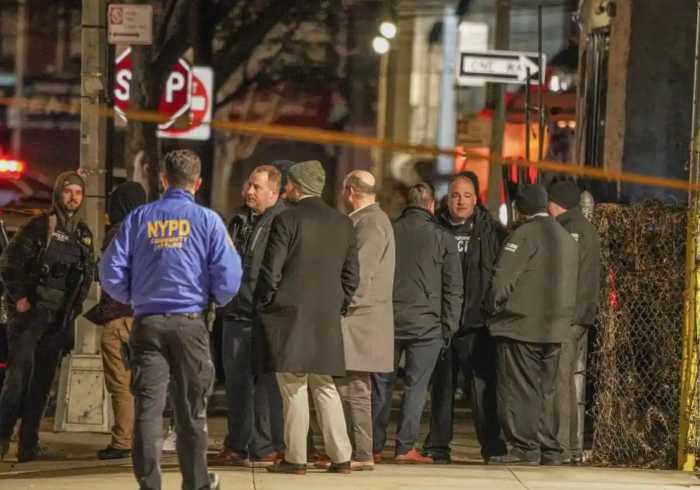Members of several diverse AAPI groups rallied outside of Queens Borough Hall in Kew Gardens on Wednesday, May 10, calling on the City Council to adopt a “fair, inclusive and equitable budget” that uplifts the needs of Asian American and Pacific Islander (AAPI) New Yorkers.
The groups are part of the 18% and Growing Campaign led by the Coalition for Asian American Children and Families (CACF), an organization that advocates for equity and opportunity for marginalized AAPI children and families.
The campaign — together with over 100 community members, service providers, advocates and elected allies citywide — are calling for transparent investments and to ensure their communities needs are met. This includes investments in legal services, immigration services, housing, domestic care, healthcare, education, creative arts, and more.
“For almost two decades, we have come together to advocate as a united AAPI community starting with a 10% and Growing Campaign, to today’s 18% and Growing Campaign. We are the fastest growing community across the five boroughs, and we need a budget that represents that,” said Felicia Singh, director of policy and government relations at CACF.
For Fiscal Year 2024, Singh said that the coalition is hoping for the enhancement to critically invest in the 90 AAPI-led and serving organizations that “provide culturally responsive and linguistically accessible, direct services” to the hundreds of thousands of AAPI New Yorkers across the state.

“We are not a monolith and we are not a model minority. We are here together to fight for a fair, inclusive and equitable budget that is not balanced on the backs of our struggling and most working-class communities,” Singh said.
As New York City is home to the largest Indo-Caribbean and South Asian foreign-born populations, many of whom live in immigrant communities like Richmond Hill and South Ozone Park, Mohamed Amin, executive director of The Caribbean Equality Project, is calling on elected officials to invest in their communities.
“If there’s one thing that COVID-19 taught all of us is that undocumented, low-income and LGBTQ people and immigrant communities are among those most vulnerable in New York City,” Amin said. “I am calling on the city council members for Richmond Hill and South Ozone Park to invest in keeping us safe, including capacity building for community-based organizations, language access, and passing the Secure Jobs Act to prohibit employers from unjust firings and expand workers’ rights.”
In his speech, Amin also highlighted that Black and brown LGBTQ communities are still recovering from the “harmful impact of the Trump administration” that brought forth violence and hate.
“We continue to see rising rates of anti-Asian hate violence, racism, dangerous anti-trans bills and reproductive legislation, police brutality and racial profiling,” Amin said. “Your neighborhood, immigration status, socio-economic background, race, sexual orientation, gender identity or sex, should not be barriers to accessing lifesaving resources in New York City.”
Currently, the APPI community is by percentage the fastest growing group in New York City, nearly doubling every decade since 1970 and making up 18% of the population, according to CACF. Unfortunately, current levels of public funding for the AAPI community remain disproportionate to the community’s expansive growth and needs.
In Fiscal Year 2022, the community only received 4.46% of city council discretionary funds, according to CACF.
“The AAPI community is by percentage the fastest-growing group in NYC, making up 18% of the population,” said Julie Ma, director of strategy, Korean American Family Service Center in Flushing. “Unfortunately, AAPI-led organizations receive less than 5% of the city’s discretionary dollars.”

Shaaranya Pillai, deputy director of India Home, the largest program dedicated to improving the quality-of-life of South Asian and Indo-Caribbean older adults across the city, stressed the rapidly growing AAPI population and the demands for more services to meet the needs of the community, especially seniors.

“We pride ourselves in providing tailored services our communities need — addressing gaps that conventional senior center programs just fail to address,” Pillai said. “Not only do the AAPI community receive an unacceptable 4% of the NYC budget, despite making more than 18% of the population, Asians in Queens make up 30% of the population and only .5% of the city’s budget goes to older adult programs.”
India Home continues to provide services despite how challenging and expensive it is to find culturally competent care in personnel. According to Pillai, older adults experience increased mental health challenges due to isolation and loneliness, and increased hate crimes and violence.
“We continue to invest in older adults seeking various funding opportunities that we have to contort ourselves to just to serve our communities. Our AAPI community is just as deserving of the investments from the city,” Pillai said.



































